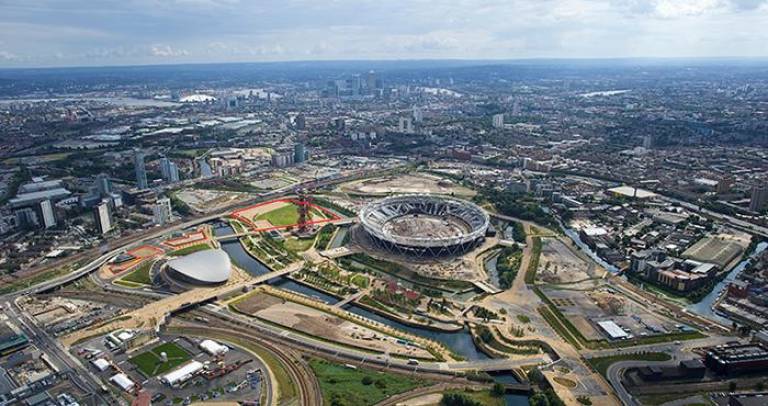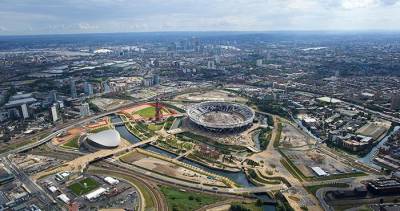UCL East cross-disciplinary student research group: call for participants
21 October 2015

Professor Michael Stewart is leading a team looking for UCL students in all fields to produce dissertations (at undergraduate and taught postgraduate level) linked to UCL's new campus and how it will affect the local area. It's an opportunity to write your dissertation on a topic that's a big part of the UCL 2034 plan and to be part of a multi-disciplinary team working across UCL, including Dr Clare Melhuish from the Urban Laboratory, whose case study research on university-led regeneration has just been published (see university-led regeneration case study research, and the university-led urban regeration blog).
You will be joining a cross-disciplinary team of students which will meet monthly with Michael Stewart, Greg Thompson and others working in Newham, to work on dissertations dealing with important issues in the area.
During a two week UCL East summer school this year organised by Prof Stewart and Greg Thompson, students from universities across London and other young people from Newham investigated what UCL's new campus on the Olympic Park might mean for UCL. UCL students are now being encouraged to carry out further research to inform our thinking about the area we are moving into and about how UCL can contribute to civic life in our new neighbourhood. By developing relationships in Newham, and building on the work done by Kim Townsend, UCL's Public Engagement Co-Ordinator (East), UCL's academic community can shape decisions as to what a university can actually do in and for the area.
Some proposed research topics and areas, informed by Urban Laboratory's case study research, include:
- Integration of natural and manmade environments at the Olympic Park: biodiversity
- Campus design including sustainability: how is sustainability defined, implemented and future-proofed?
- What does sustainability mean to local people and what is the interface with behaviour change?
- Masterplanning process - including urban design, project management, and management science dimensions.
- Processes and structures of governance inside universities and the results they generate.
- Impacts on development on land values and rents: how do people survive in a high rent city on low wages?
- Wellbeing - how is wellbeing defined, and what is the impact of university development on wellbeing, including areas such as housing and health? (eg ethnographic study of Guttman Centre; see also UCL Institute for Global Prosperity's Prosperity in East London project).
- What does wellbeing mean for different cultural groups in Newham, and how does country of origin influence people's social interactions and activities?
- Transnational (local/global) connections amongst Newham's population, and impacts on perceptions of locality and belonging.
- Local government (housing) policy - e.g. compare London Boroughs of Lambeth and Newham (see Urban Lab case study 5) - and intersection with national regeneration policy framework.
- Anchor institutions and local government - how are partnerships assembled, what drives those choices, and what are their consequences?
- Visions of education and Higher Education in Newham? What do people imagine a university to be?
- Local (critical) heritage - how should it be defined? What might a museum of Newham be like, and how might we frame UCL East as an approach to 'curating the city'?
- Evolution of Hackney Wick in 2015-16.
If you are interested and want to know more, please contact Professor Stewart (m.stewart@ucl.ac.uk) or Clare Melhuish (clare.melhuish@ucl.ac.uk).
Links
 Close
Close


